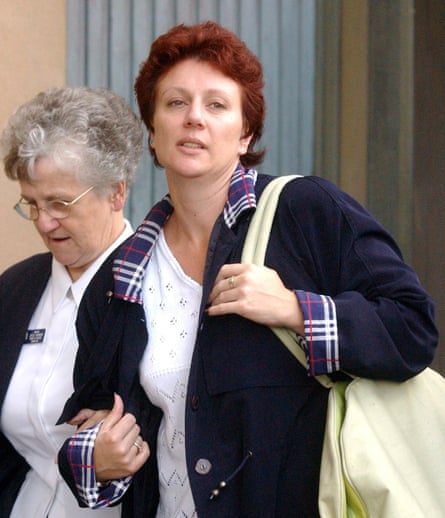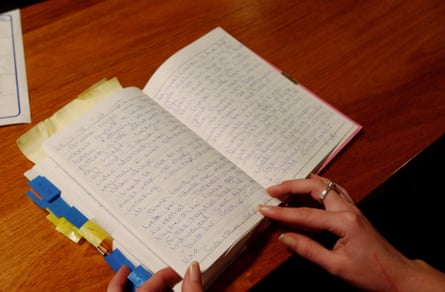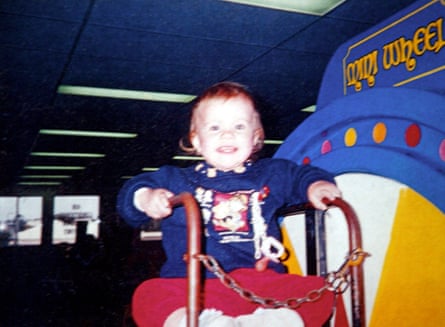From Australia's 'most hated woman' to a state pardon: how ...
It was four short questions during a nine-hour police interview in 1999 that made Kathleen Folbigg fully comprehend what was happening.

“Kathy, did you kill Caleb?” asks the officer sitting next to Folbigg in a small room at a police station near the banks of Australia’s Hunter River.
“No,” she sobs, with a tissue in hand.
Folbigg gives the same response for the next three questions: did she kill her children Patrick, Sarah and Laura?
Sign up for Guardian Australia’s free morning and afternoon email newsletters for your daily news roundup
In 2003, Folbigg would be convicted of murdering three of her children, and the manslaughter of one child. She was labelled a baby killer, a serial killer and Australia’s “most hated woman”.
But Folbigg, now 55, has always maintained her innocence. On Monday, 20 years after she was incarcerated, she was pardoned and released.
An inquiry found there was reasonable doubt as to Folbigg’s guilt for each of the deaths after new scientific evidence found three of the children could have died of natural causes.
Her advocates say she has suffered one of the gravest miscarriages of justice in Australia’s history.
“It is impossible to comprehend the injury that has been inflicted upon Kathleen Folbigg,” says her lawyer, Rhanee Rego.
“The pain of losing her children, close to two decades locked away in maximum security prisons for crimes which science has proved never occurred.”
‘My baby’s not breathing’By 1999, Folbigg had already lost three of her children in their infancy. That year she found her fourth child, 18-month-old Laura, unresponsive.
“My baby’s not breathing,” Folbigg told an ambulance operator from her home in the New South Wales town of Singleton in a recording played to court.
“I’ve had three Sids [sudden infant death syndrome] deaths already … I’ve had three go already.”
Paramedics were unable to resuscitate her daughter and Laura was declared dead.
Kathleen Folbigg leaves the supreme court of NSW during the 2003 trial. Photograph: Mick Tsikas/AAPShe was Folbigg’s fourth child to die. Caleb, a placid baby with intense eyes, died aged 19 days in 1989. Patrick, who suffered from epilepsy and vision impairment, died aged eight months in 1991. And Sarah, remembered as the cheeky child, died at 10 months in 1993.

Folbigg had already had a traumatic start to life. She was raised by adoptive parents after her father stabbed her mother to death before her second birthday, an inquiry would later note.
When Folbigg’s trial began in 2003, there was no physical evidence she had harmed the children. Instead, the prosecution relied heavily on diary entries Folbigg had written.
One of Folbigg’s diaries, which the prosecution maintained were an admission of guilt. Photograph: Dean Lewins/AAP“Very depressed with myself, angry & upset – I’ve done it. I lost it with her,” one January 1998 entry about Laura read. “I yelled at her so angrily that it scared her, she hasn’t stopped crying. Got so bad I nearly purposely dropped her on the floor & left her.”
“I restrained enough to put her on the floor & walk away. Went to my room & left her to cry. Was gone probably only 5 mins but it seemed like a lifetime. I feel like the worst mother on this earth. Scared that she’ll leave me now. Like Sarah did. I knew I was short tempered & cruel sometimes to her & she left. With a bit of help.”
The prosecution contended Folbigg’s diary entries were an admission of guilt, proving she had struggled as a mother and had a tendency to lose her temper with each of the children and then smother them.
The 2003 trial was also strongly influenced by the since-discredited Meadow’s Law, a precept espoused by a controversial paediatrician, Roy Meadow, suggesting that three or more sudden infant deaths in one family was murder until proven otherwise.
Full Story podcast
The new evidence that could see Kathleen Folbigg walk freeSorry your browser does not support audio - but you can download here and listen https://audio.guim.co.uk/2020/05/05-61553-gnl.fw.200505.jf.ch7DW.mp3
00:00:00
00:17:11
Throughout the trial, Folbigg was criticised for not grieving in the way the broader public expected of a women not guilty of murdering her children.

When the guilty verdict was delivered and she was sentenced to 40 years in prison, she buckled and cried.
skip past newsletter promotionafter newsletter promotion
Later, that sentence would be reduced to a 25-year non-parole period.
A push for releaseIn the years after Folbigg’s conviction, more and more people began pushing for her release.
They included Folbigg’s school friend, Tracy Chapman, who called Folbigg in prison almost every day, and Folbigg’s lawyer Rego, who has worked on the case pro bono for the past six years.
A 2019 judicial inquiry into Folbigg’s conviction found the evidence confirmed Folbigg’s guilt.
But another inquiry was triggered last year after new scientific findings that Folbigg and her two daughters – Laura and Sarah – carried a rare genetic variation, known as CALM2-G114R, casting doubt on her convictions.
The counsel assisting the inquiry, Sophie Callan SC, said there was “persuasive expert evidence” that one of Folbigg’s sons, Patrick, may have died from an underlying neurogenetic disorder. The cause of her son Caleb’s death remains undetermined.
Folbigg and her two daughters – Laura (pictured) and Sarah – carried a rare genetic variation, known as CALM2-G114R. Photograph: Dean Lewins/AAP“On the whole of the body of evidence before this inquiry there is a reasonable doubt as to Ms Folbigg’s guilt,” Callan said in April.
“I sat in court a month ago and I heard the words reasonable doubt and have hung on to those words, waiting, waiting,” Chapman told reporters last week.
The psychological and psychiatric experts at the recent inquiry also determined the diary entries shouldn’t be interpreted as admissions to killing or harming of her children. Instead, they should be read as a grieving and possibly depressed mother, blaming herself for the death of each child.
On Monday, the New South Wales attorney general, Michale Daley, announced Folbigg had been pardoned based on summary findings from the inquiry.
“We’ve got four little bubbas who are dead. We have a husband and wife who lost each other, a woman who spent 20 years in jail and a family that never had a chance,” he said during the announcement.
“You’d not be human if you didn’t feel something about that.”
What happens next?Human rights and criminal law barrister, Felicity Graham, said Folbigg’s case is an indictment on the country’s system.
“Across Australia, we need to reform our systems for dealing with potential miscarriages of justice,” she says. “The current safeguards are not sufficiently robust, nor sufficiently responsive to the urgency and the horror of someone being wrongly convicted.”
Rego says it is time Australia implements a body that reviews such matters, following the lead of the UK, Scotland, Norway, New Zealand and Canada.
“This case should reignite the discussion to strengthen the interactions between law and science, to make important reforms so that the legal system makes decisions based on the best scientific evidence available, not speculation,” she says.
“It is Ms Folbigg’s hope that the legal system will thoroughly investigate sudden infant deaths before seeking to blame parents without good reason to do so.
“Ms Folbigg’s freedom today is a breakthrough moment on a long and painful journey. We have all been inspired by her persistence for the truth to be known.”



















































